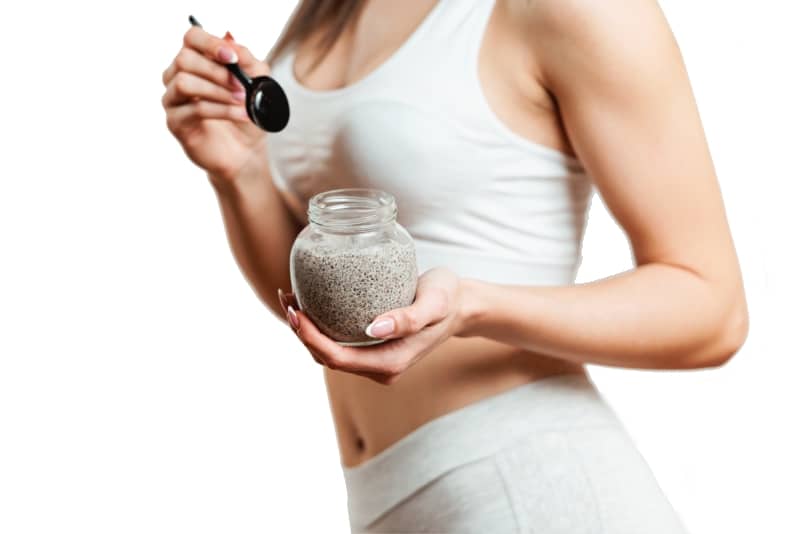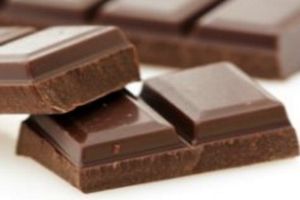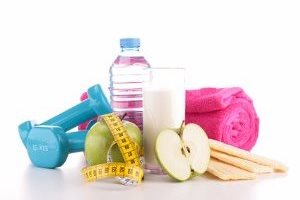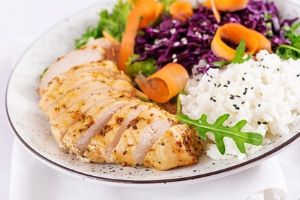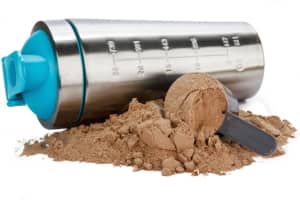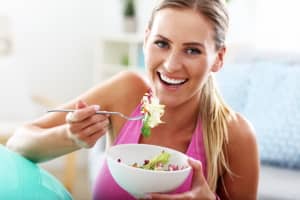- A superfood that comes from afar
- Good quality macronutrients: energy and cardiovascular health
- Vitamins and minerals essential for athletes
- Our ally against ageing, high blood pressure and cholesterol
- For good intestinal health and better blood sugar regulation
- Be careful with the portions!
- And now - in practice!
A superfood that comes from afar
Let's start with a little history first. Chia seeds are harvested from the salva hispanica plant and thus have common origins with mint. They were one of the main foods of the Aztec and Mayan peoples in South America, alongside corn and beans. They used them for energy, which they needed for their long walks. Hence the name of these seeds: "chia" means "strength" in the ancient Mayan language.
Now back to our time: in 1990, a patent was granted to Core Naturals, an American company, to cultivate a variety of chia seeds, the Salba. First grown in Peru, the company began to grow them in the northern part of the American continent as well. Since then, their consumption has spread to Western countries.
The reason why these seeds are so successful is their nutritional value. It is recommended to consume about 2 tablespoons of chia seeds per day, which is about 30 grams. In these 30 grams, there are many minerals and vitamins, as well as proteins and omega 3.
Good quality macronutrients: energy and cardiovascular health
Important information for all vegetarian and vegan sportsmen and women among us! Chia seeds are complete proteins! This means that the protein in the seeds consists of all 9 essential amino acids. Generally speaking, plant foods are lacking in one essential amino acid, but this is not the case with these little seeds!

We often hear that seeds are beneficial for cardiovascular health. Yes, thanks to the omega-3s they contain. There are three main types of omegas: omegas 3, omegas 6 and omegas 9. While the European population consumes a lot of omega 9 (olive oil, avocados, etc.) and omega 6 (sunflower oil, etc.), it does not consume enough omega 3, which can be found in fish, flax and rapeseed oils, walnuts and... chia seeds! Omega 3s not only have a protective role for cardiovascular health, but also contribute to the proper functioning of the brain and the prevention of certain types of cancer and type 2 diabetes. In addition, they allow better muscle recovery after training and have an anti-inflammatory effect. Goodbye aches and pains!
Vitamins and minerals essential for athletes
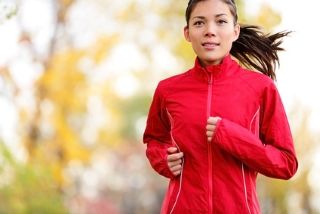
In addition to valuable proteins and fats, chia seeds are an excellent source of several vitamins and minerals, which are beneficial to everyone - and are particularly interesting for athletes and vegetarians or vegans.
The iron makes up haemoglobin and myoglobin and thus acts on the oxygenation of our cells and muscles. The potassium , phosphorus and magnesium allow athletes to maintain their acid-base balance, and recover well after exercise sessions, as these minerals play an important role in muscle contraction.
The calcium on the other hand is important for bone health and helps prevent stress fractures.
Our ally against ageing, high blood pressure and cholesterol
Rich in vitamin C, zinc and manganese , seeds are a valuable antioxidant and fight free radicals, which attack cell membranes and promote skin aging. Antioxidants are also thought to play a role in preventing certain cancers and cardiovascular diseases.
Through these antioxidants, chia seeds would have beneficial effects for people suffering from high blood pressure. Moreover, the antioxidants participate in the fight against bad cholesterol, as do the phytosterols, plant lipids, present in the seeds.
Read also: Free radicals and antioxidants: which foods to favour.
For good intestinal health and better blood sugar regulation
Seeds are a source of dietary fibre and have mucilaginous properties: they swell and turn into a gel. They can thus absorb more than ten times their weight in water. This has two major advantages. Firstly, they expand in the stomach and make you feel full. This means that you can forget about snacking and cravings - your waistline will thank you!
Secondly, it slows down the digestion of carbohydrates and thus the assimilation of glucose. During sporting activities, the seeds consumed beforehand therefore provide the body with energy gradually. This prevents blood sugar peaks, which are the cause of type 2 diabetes, and reactional hypoglycaemia.
Be careful with the portions!
La spiruline : un super-aliment riche en antioxydants !
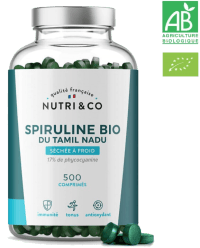 La spiruline est une microalgue aux vertus étonnantes. Elle fait partie des super-aliments qu'il faudrait consommer régulièrement tant ses bienfaits pour la santé sont nombreux. Elle serait efficace pour lutter contre le vieillissement, protéger le cerveau et le cœur, détoxifier l'organisme, lutter contre le mauvais cholestérol et les triglycérides. Attention à sa qualité qui doit être irréprochable. Nous recommandons la spiruline BIO de Nutri&Co (analyse disponible sur le site).
La spiruline est une microalgue aux vertus étonnantes. Elle fait partie des super-aliments qu'il faudrait consommer régulièrement tant ses bienfaits pour la santé sont nombreux. Elle serait efficace pour lutter contre le vieillissement, protéger le cerveau et le cœur, détoxifier l'organisme, lutter contre le mauvais cholestérol et les triglycérides. Attention à sa qualité qui doit être irréprochable. Nous recommandons la spiruline BIO de Nutri&Co (analyse disponible sur le site).
The companies marketing chia seeds disproportionately promote the benefits of the seeds. Indeed, if 100 grams of chia seeds contain more calcium than 100 grams of milk, and more omega 3 than 100 grams of fatty fish such as salmon, we rarely (if ever) consume 100 grams of chia seeds in 1 day... whereas we will without any problem eat a slab of fish or drink a large glass of milk.
So keep it in perspective! Seeds have a concentration of minerals and vitamins, and their nutritional wealth is fascinating. But we should bear in mind that we will consume 30 grams rather than 100 grams per day. And that 30 grams already gives us a lot of benefits - just don't overdo it!
It is also important to remember that there are three types of omega-3 fatty acids:
- Alpha-linoleic acid (or ALA)
- Eicosapentaenoic fatty acid (or EPA)
- Docosahexaenoic fatty acid (or DHA)
Plant foods are sources of ALA, while animal foods are sources of EPA and DHA. ALAs are essential fatty acids and cannot be synthesised by our bodies. It is therefore essential to provide them through the diet. EPA and DHA can be synthesised from ALA, but the conversion rate is quite low. It is therefore advisable to vary the consumption of omega-3s in order to obtain maximum benefit.
Another consideration is allergies. A person who is allergic to other kinds of seeds, such as flax or sunflower seeds, is likely to develop an allergy to chia seeds as well.
Then, people suffering from diseases causing intestinal disorders should avoid eating too much chia seeds. The amount of dietary fibre could cause diarrhoea.
And now - in practice!
Now you know why you should eat these seeds - the question is how? Here are some recipe ideas! And a little tip for vegans: 2 tablespoons of chia seeds can replace 1 egg in any recipe!
Flans with chias
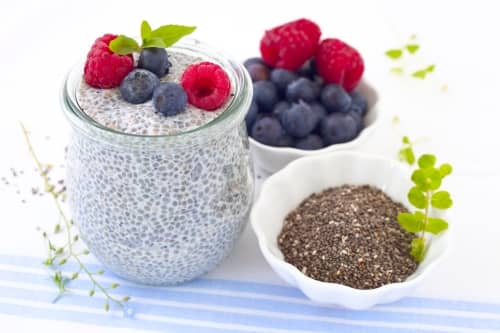
Mix 2 tablespoons of chia seeds with 100 ml of plant milk. Add 100 grams of fruit of your choice, cut into small pieces. Leave in the fridge for 2 hours.
Chia seed pancake

Mix 100 grams of rolled oats, 1 egg, 1 banana, 2 tablespoons of chia seeds, 50 ml of plant milk and a packet of baking powder. Cook the pancakes in a pan for about 3 minutes per side.
Salted courgette and chia cake
Preheat oven to 180°C. Mix 200 grams of spelt flour, 2 eggs, 2 tablespoons of chia seeds, 1 sachet of yeast and 120 ml of vegetable milk. Then add 400 grams of grated courgettes, 2 tablespoons of herbes de Provence, salt and pepper. Place in a cake tin covered with baking paper and bake for 40 minutes at 180°C.
These articles may also interest you
Magnésium et sport : attention aux carences en magnésium chez le sportif
Nutrition sportive : 5 idées reçues à changer
Sports nutrition: easily create your own 100% personalized food program
The 5 best food supplements to improve sports recovery
Photo credit : Adobe Stock. This article contains commercial links.

